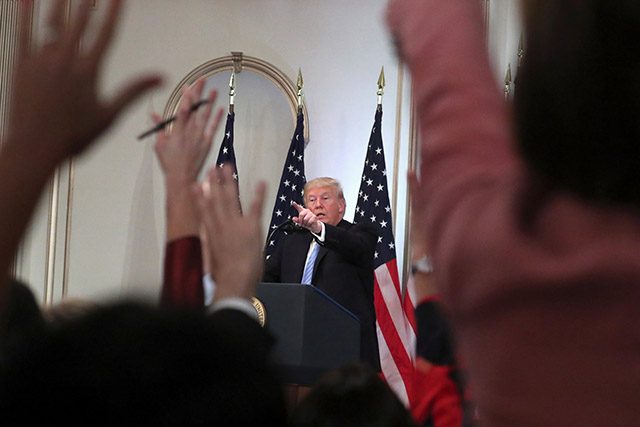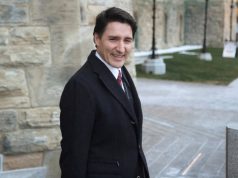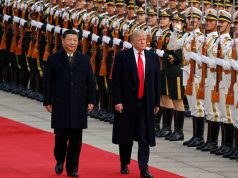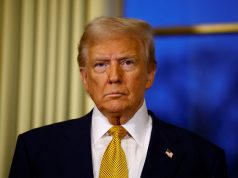
UNITED NATIONS — U.S. President Donald Trump on Wednesday blasted Canada over the slow pace of talks over NAFTA, saying he was so unhappy that he had rejected Canadian Prime Minister Justin Trudeau‘s request for a one-on-one meeting.
The remarks by Trump, who repeated a threat to impose tariffs on Canadian autos, knocked the Canadian dollar down to a one-week low against the U.S. greenback.
The comments also mark a new low in relations between the two leaders. Trudeau spokeswoman Chantal Gagnon said: “No meeting was requested. We don’t have any comment beyond that.”
The attack cast further doubt on the future of the three-nation North American Free Trade Agreement, which underpins $1.2 trillion in annual trade between Canada, Mexico and the United States. Markets and business groups are openly fretting about the damage that a collapse could provoke.
Trump, who wants major changes to the 1994 treaty, has already concluded a text with Mexico and is threatening to leave out Canada unless it signs up by this Sunday.
Trump told reporters he had rebuffed a Trudeau request for a meeting “because his tariffs are too high and he doesn’t seem to want to move and I told him ‘forget about it’. And frankly we’re thinking about just taxing cars coming in from Canada.”
Earlier on Wednesday, Trudeau shrugged off U.S. pressure to quickly agree to a deal and indicated it was possible the three member nations might fail to conclude a new pact.
The two sides are still far apart on major issues such as how to settle disputes and U.S. demands for more access to Canada’s protected dairy market.
“We’re very unhappy with the negotiations and the negotiating style of Canada. We don’t like their representative very much,” Trump said in an apparent reference to Canadian Foreign Minister Chrystia Freeland.
Relations between the Canadian and U.S. leaders have been chilly since June, when Trump left a Group of Seven summit in Canada and then accused Trudeau of being dishonest and weak.
U.S. Trade Representative Robert Lighthizer – Freeland’s counterpart at the talks – on Tuesday had complained Canada was not making enough concessions and said time was running out.
Canadian officials said they do not believe Trump can rework NAFTA into a bilateral deal without the approval of Congress.
“We will keep working as long as it takes to get to the right deal for Canada,” Trudeau earlier told reporters at the United Nations. He has repeatedly said he is ready to walk away from the talks rather than sign a document he thinks is bad.
Asked about the challenge that autos tariffs would pose, Trudeau said Canada would need to feel confident “about the path forward as we move forward – if we do – on a NAFTA 2.0.”
The three nations’ auto industries are highly integrated and tariffs on Canadian cars would be hugely disruptive.
Speaking separately, Canada’s ambassador to Washington said that on a scale of 1 to 10, the chances of an agreement by the Sept. 30 deadline were 5.
“If it doesn’t happen by the end of the week, we’ll just keep working away and trying to get the best deal for Canada,” David MacNaughton told a Toronto event arranged by Politico Canada.
A Trump administration official said the text of the agreement with Mexico was set to be published on Friday.
The official declined to be named because the matter has not yet been made public. A spokesman for the U.S. Trade Representative’s Office declined to comment.
Trudeau said existing U.S. tariffs on Canadian steel and aluminum in late May would have to be scrapped before Canada felt comfortable signing a new NAFTA.
The Trump administration has said the text of an agreement between the three nations is needed by Sunday to allow the current Mexican government to sign it before it leaves office at the end of November. —Reporting by David Lawder Additional reporting by David Ljunggren in Ottawa and David Shepardson in Washington, writing by David Ljunggren Editing by Nick Zieminski and Lisa Shumaker









